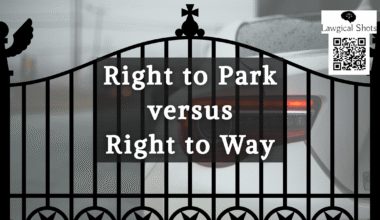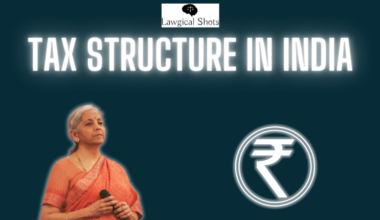India is a country with courts burdened with pendency of cases. When the concept of justice is fast disappearing for the average man, we have the Lok Adalat – MEANING – Peoples Court, comes to our rescue. Lok Adalat provides a convenient, quick and cheap dispute resolution mechanism from the ad infinitum of litigation. The Lok Adalat, unlike traditional courts – participation, is not so formal, so parties can get their disputes resolved amicably with the help of a third neutral party, which in most scenarios is a retired judge or legal practitioner.
The operation of Lok Adalat is an extension of the Gandhian definition – Gram Nyayalaya – justice for the people by the people, at their doorstep. Lok Adalat focuses on mutual agreement and compromise and is an informal dispute resolution mechanism. It is consistent with the absence of a proper adversary. Within the framework of the Legal Services Authorities Act, 1987, Lok Adalat seeks to provide justice to those unable to pay or who do not have the sophistication to deal with the complications of formal litigation. In an existing justice system that was already battling crores of pending cases, Lok Adalat emerges as a people friendly dispute resolution mechanism that saves time.
Back Story of Lok Adalat
The idea of resolving disputes outside formal courts is not new in India. Even before the modern court system entered the picture, village societies relied on *panchayats* — informal councils of elderly persons who used to help settle disputes within the village. These informal methods were based on dialogue, social values, and the goal of restoring harmony, not assigning blame. Lok Adalats are, in many ways, an extension of that customary thinking.
The formal idea of Lok Adalats came in 1982 with the first Lok Adalat in Gujarat. The success of this attempt led legal reformers and policymakers to come to terms with the possibilities of conducting a formal Lok Adalat. Eventually, this culminated in the passing of the Legal Services Authorities Act, 1987, which established a statutory framework for the establishment of Lok Adalats throughout India. The rationale was very straightforward: to make justice accessible to everyone, especially the poor, and ease the burden on our overloaded courts.
Lok Adalats have developed in size and significance over the years. These days, Lok Adalats are organized at national, state, district, taluk, and lowest levels, and they help settle lakhs of cases pertaining to civil disputes, traffic challans, family matters, even compensation claims. What is special about Lok Adalat is its human element – it brings justice to the people in a manner that is quick, dignified, and based on compromise.
Characteristics of Lok Adalats
Lok Adalat is the type of people-oriented justice that avoids the complexities, time, and costs often associated with traditional courtroom procedures. It offers a straightforward, efficient, and inexpensive mechanism to settle disputes and conflicts, especially for so-called laypersons who may not be familiar with, or overloaded with, the often-intimidating formal legal process.
Below are the major characteristics that distinguish the unique and effective approach that lok adalat employs with dispute resolution:
1. Voluntary Participation
One of the primary characteristics of Lok Adalat is that it is completely voluntary. In Lok Adalat, both parties to the dispute must be willing to settle the dispute through this forum. There is no pressure or coercion — only agreement and understanding between the parties. Because both parties are essentially cooperating and either trying to avoid a confrontation or seeing the societal benefits of cooperative actions, the process is less adversarial in nature.
2. Fast and Convenient
Time is often a major constraint in court proceedings, with some cases taking years to resolve. Conversely, disputes referred to Lok Adalat tend to be resolved within a single session or day. This saves not only against delays but emotionally and mentally draining outcomes due continuation of an ongoing legal dispute.
3. Low or No Cost
Legal costs are often a major obstacle to justice for many individuals, particularly those from economically weaker sections. Lok Adalats eliminate that obstacle. Hence, there are at most low costs or no fees at all. Furthermore, if a dispute that was pending in court was resolved via Lok Adalat, there is a provision to refund the court fee previously paid.
4. Informal and People-Centred Process
Unlike normal courts with strict adherence to procedure, legal technicalities and formalities, Lok Adalat works in a more relaxed and informal manner. There are no complex legal processes or tight evidentiary rules. Conversations about resolving the underlying issues between disputing parties are the focus as opposed to legal technical resources.
5. Legally Binding Resolution
While the process is informal, the results produced by a Lok Adalat are certainly not weak. Once a settlement sreached at a Lok Adalat, settlement has the full force and effect as a unilateral decree of the court. The settlement in Lok Adalat is binding on both parties, can be enforced in accordance with law, and there is no further appeal against the settlement once reached.
6. Facilitating Access to Justice
Lok Adalat plays an important role of facilitating access to justice. For rural-based people or people who simply cannot afford the costs of hiring lawyers or the costs of multiple trips to the courts, it offers a dignified means of resolving disputes. It has provided millions of people with a chance to receive fair and timely settlements to their problems, whether they are related to family matters, property issues, or claims for compensation, or small civil disputes.
Lok Adalat under Constitution of India
Article 39A of the Indian Constitution provides for the State to take steps to ensure that the legal system is to enable justice to be obtained by citizens in accordance with the principle of equal opportunity that should be made available and. When the State fails to make it available, to provide free legal aid to citizens so that no citizen is denied justice by reason of poverty or some other disadvantage. Article 39A encapsulates the values of social justice and inclusiveness particularly for the poor, unlettered, and marginalized disposition who might have no access to the regular courts for the enforcement of even basic justice.
Parliament passed the Legal Services Authorities Act, 1987, to effectuate the provisions of Article 39A, wherein Lok Adalats were formally operationalized as a mechanism of transmission of people’s justice in a comprehensive, accessible, affordable, and timely manner. Lok Adalats offer a solution to people by providing a costless mechanism to settle matters in an amicable way devoid of legal procedures, reduce the burden on the judiciary, and make justice accessible and guaranteed to all people rather than justice being a privilege of a few. The Lok Adalats, in effect, represent the living example of the operationalization of the principle of Article 39A, and are taking justice to the doorstep of those who need access to justice the most.
Types of Lok Adalats
Lok Adalats are not ‘one size fits all’. They come in various forms according to different levels of the judiciary and types of disputes in the area of discussion. All types of Lok Adalats are important in providing justice affordably, quickly and with less hassle.
Below is a closer look at the various types of Lok Adalats:
1. Permanent Lok Adalat (PLA)
Permanent Lok Adalats act as a public authority to settle disputes. They are established under Section 22B of the Legal Services Authorities Act for the purpose of adjudicating or settling disputes arising out of public utility services — the commonly needed services we require on a daily basis — including:
• Transport such as buses and trains
• Postal and telegraph services
• Electricity, water and sanitation
• Health services
What makes PLAs unique is they can provide a binding decision, even if the parties do not agree on a settlement (unless of course this does not involve a criminal matter). Essentially, it acts as a conciliator first, but when needed it also can be a decision maker.
2. National Lok Adalat
This is a national initiative consisting of up to 6 National Lok Adalats (that all take place in a single day, with all levels of courts – including the Supreme Court, High Courts, and all lower level courts) taking place in this manner in each calendar year. In fact, to maximize the impact, the purpose of a National Lok Adalat is to resolve the maximum number of pending and pre-litigation matters in one sitting.
Some common matters for these include:
• Civil disputes
• Cheque bounce cases (Section 138 of the NI Act)
• Motor accident claims
It is strong initiative to relieve court case loads, and offer people an opportunity to settle all issues in one hearing.
3. State Lok Adalat
State Lok Adalats are organized by the State Legal Services Authorities (SLSA) and function within the legal framework of a state. The matter will be disposed of as per the reference from lower court or High Court. It also works as a link between district level and higher level legal services.
4. District Lok Adalat
District-level Lok Adalats are organized by District Legal Services Authorities (DLSA) and are meant for handling the local cases — especially small civil disputes, family matters, and pre-litigation matters. They are quick, accessible, and cut through the stopwatch of day-to-day court obstacles by resolving typical legal issues without forcing people to participate in drawn-out court processes.
5. Taluk (Tehsil) Lok Adalat
The Taluk level (sub-district or tehsil level) Lok Adalats are organized by Taluka Legal Services Committees. They primarily meet the legal needs of people in the rural and semi-urban areas with limited access to courts and lawyers. They are an effective mechanism for the speedy and amicable settlement of local disputes.
6. Mobile Lok Adalat
Mobile Lok Adalat is nothing other than what its name implies — it travels from place to place, and especially addresses the needs of areas that are rural and isolated, with little or no legal infrastructure. Mobile Lok Adalat addresses:
• Land disputes
• Labour matters
• Family matters
In short, Mobile Lok Adalat ensures no one can be denied justice simply because they are a long way from a court.
7. Mega Lok Adalat
This is a big scale legal program where all the courts in a state hold Lok Adalats on the same day. Think of it as a legal festival of justice — the goal is, of course, to resolve as many cases as possible, especially those pending cases or awaiting litigation. These proceedings are blasted on television, on social media, and any other avenue that brings attention to the need for people to attend.
Each of these categories of Lok Adalat represent a effort to provide justice in a simpler, faster, and inclusive manner. Together they promote the notion that the law should serve the people, and not overwhelm them.
Types of Cases Covered By Lok Adalats
Lok Adalats are effective and fast in resolving disputes of a wide variety, conveniently, affordably and amicably. Lok Adalats address civil matters along with some petty criminal cases so long the parties agree to settle. Here are the main types of cases that Lok Adalats are dealing with:
- Civil Cases:
About all civil disputes are now being resolved at Lok Adalats, including disputes about land or housing, and family inheritances etc., and disputes regarding the breach of contracts.
- Compoundable Criminal Cases:
Any case that is deemed a minor offense, for example, petty theft, simple assault or defamation is resolved here — where the injured party has the legal ability to forgive the defendant. Murder, rape and other serious crimes are not dealt with by Lok Adalat.
- Labour and Employment Cases:
Issues like wrongful dismissal, unpaid wages or entitlement to compensation from an employer or employee can be resolved at Lok Adalats instead of going to a trial or arbitration.
- Consumer Disputes:
Consumers who face significant problems like faulty goods, a delay in services or poor quality may wish to seek dispute resolution at a Lok Adalat, which will not cost them anything and will generally be resolved much faster.
- Motor Accident or Claims:
Any person involved in a motor accident can make a claim for compensation against their own insurance company or the defendant. This is usually achievable in a quick and easy settlement process.
Lok Adalat Process
The process in a Lok Adalat is simple, informal, and is intentionally structured to facilitate compromise instead of confrontation. This summary describes a typical case in a Lok Adalat:
1. Case Referral
Cases may be referred to the Lok Adalat by the regular courts or the parties can walk in themselves to seek an out-of-court settlement. In some cases, the Legal Services Authorities will also refer a case which is eligible based upon its rules.
2. Preliminary Hearing
Both parties are given a brief opportunity to state their position. The panel which may be composed of a judge, a lawyer to be recognized, or a social worker listens to the statements to understand the dispute.
3. Mediation and Negotiation
The Lok Adalat bench helps parties to communicate so that they can attempt to find a middle ground. The focus is on mutual understanding and not disputing guilt or innocence.
4. Settlement
If a settlement term is reached by both sides, it will be put in writing and signed. The agreement will be accepted as final in a court proceeding, is binding, and carries the same weight as an order of a civil court as a decree and is enforceable.
5. No Settlement
If no agreement is reached, the case is simply sent back to the regular court, for further procedure.
A Lok Adalat Bench usually comprises:
• A sitting or retired judicial officer
• An attorney
• A social worker
• These people are conciliation officers, and don’t act as judges
They will:
• Facilitate open communication, also known as dialogue; and
• Promote mutual understandings and compromises; and
• Assist both sides reach a voluntary peaceful settlement;
• They do not move other parties, as in any other courts, to reach a decision; but facilitate the parties to decide the conclusion on their own.
How Can a Case Be Referred to Lok Adalat?
Cases can be referred to a Lok Adalat in two basic situations, depending on whether the case has been filed in court or not.
1. Pre-Litigation Stage
At the pre-litigated matter stage, before a case has actually been filed in court, the parties can make a decision to resolve their issue in the Lok Adalat for the pending legal proceeding. The parties can directly approach the Legal Services Authority and can seek consideration of their matter. This is a great option for parties willing to avoid the ruin, delay, cost, and litigation anxiety. At the pre-litigated stage, issues generally fall within the realm of loan recoveries or other reversible issues, or less impacting fractures of family matters or real property matters.
2. Pending Cases in Court
If a case is in court, the matter may be referred to Lok Adalat — but only with the consent of the parties. The court may encourage consideration for this broadened option when the case has a suggestion of a potential compromise agreement. Where there is a clear indication that each side is willing to resolve the dispute, once the case has been referred to the Lok Adalat, the parties will be provided an opportunity to discuss their matter and potentially reach a compromise agreement. If the parties reach an agreement, the agreement upon the signing of the agreement would be treated the same as a court order, and the settlement is binding and effectively final.
Why Lok Adalat?
- No Court Fee (Refundable at Court if you have already paid)
- Quick Disposal
- Settlement by mutual consent
- No Appeal – the matter is final
- Flexible Use of Procedure
Conclusion
Lok Adalats are not just an alternative method of taking cases, they connect the path to justice for common people. In India with its millions of individuals who face watchful cases, long waits in trials, high costs and procedures hardly understood by the average person, and on the other hand Lok Adalat offer a welcome and alternative path to resolution. They take justice and bring it and offer it to the people, in the language they can understand, in a way that they can dialogue to partake in, and at a price they can afford.
By offering a space for collaboration of conversation rather than contention; compromise rather than confrontation and community rather than controversy, Lok Adalats truly reflect the spirit of justice outlined in Article 39A in our Constitution. They not only support a reduction in the number of cases in our courts, but they also highlight values of fairness, equality/equity and access for all. In this speedy, complex and diverse social world, we can a look to mechanisms like Lok Adalat to remind us that justice does not have to be idled, nor a commodity of privilege, that it can be quick, it can be humane and it can be Right there around the Corner.
The concept of Lok Adalat in India has been explained by our intern, Ms Jai Shree. She has been assisting the team in bringing informational legal blogs.








